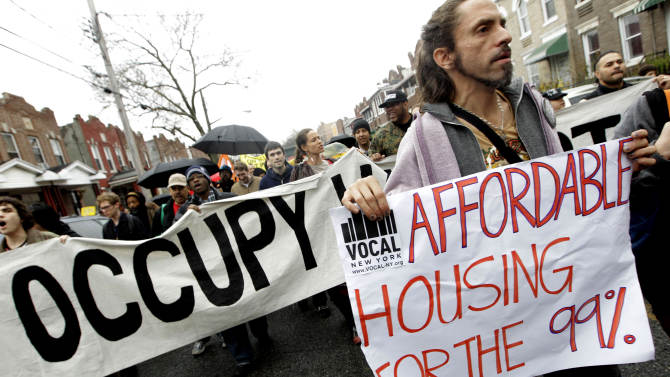WELCOME TO THE NMEX PORTAL
 Welcome to the National Market Exchange (NMEX). The Platform is highly interactive with a significant amount of automated marketing and community media features. While much of the Portal is open, full and more effective use requires registering. Posting information requires registration. Registering also allows Users to freely accumulate valuable NMEX Userpoints. By registering you agree to the terms of membership. After registering setup your personal Dashboard to organize content most important to you. Again, welcome to the NMEX Portal and thank you for registering.
Welcome to the National Market Exchange (NMEX). The Platform is highly interactive with a significant amount of automated marketing and community media features. While much of the Portal is open, full and more effective use requires registering. Posting information requires registration. Registering also allows Users to freely accumulate valuable NMEX Userpoints. By registering you agree to the terms of membership. After registering setup your personal Dashboard to organize content most important to you. Again, welcome to the NMEX Portal and thank you for registering.
Register Login
Login
Register
- News
- NMEX Aministration
- This is why the middle class can't get ahead
This is why the middle class can't get ahead
This is why the middle class can't get ahead
.
FILE - In this Dec. 6, 2011 file photo, Occupy Wall Street activists march during a tour of foreclosed homes in the East New York neighborhood of the Brooklyn borough of New York. New York Mayor Bill de Blasio has an ambitious plan to build or preserve 200,000 affordable units of housing over the next 10 years for lower-income New Yorkers, a staggering number that would house a population bigger than cities such as Atlanta or Minneapolis. (AP Photo/Mary Altaffer, File)
<!-- google_ad_section_start -->
For everybody wondering why the economic recovery feels like a recession, here’s the answer: We’re still at least five years away from regaining everything lost during the 2007-2009 downturn.
Forecasting firm IHS Global Insight predicts that real median household income — perhaps the best proxy for middle-class living standards — won’t reach the prior peak from 2007 until 2019. Since the numbers are adjusted for inflation, that means the typical family will wait 12 years until their purchasing power is as strong as it was before the recession. That would be the longest period of stagnation, by far, since the Great Depression of the 1930s.
Even though the recession officially ended in 2009, median household income declined until 2012 (which suggests maybe we ought to reconsider the way we define recessions). The total decline from the peak in 2007 to the bottom in 2012 was 8.3%. For a family earning $50,000, that means they would have been getting by on $4,150 less per year.
There's been a small uptick in incomes since 2012, but we're not even close to digging out of the crater caused by the recession. Census data going back to 1967 shows that to be the biggest drop in any recession, and the same probably holds true going all the way back to 1940. The second-worst drop in inflation-adjusted income was 6%, from a peak in 1979 to a bottom in 1983. This chart shows the trend (numbers after 2013 are projections):
By other measures, the recession is a distant memory. Total employment eclipsed pre-recession levels earlier this year. The stock market exceeded its 2007 peak in 2013, as did the total amount of household wealth — mostly home equity and financial investments. But the achingly slow recovery in incomes reveals the troublesome changes that are transforming the whole U.S. economy and holding back the middle class: Certain skills are becoming rapidly outdated, many jobs pay less than they used to and a greater share of income is flowing to the wealthy.
The stark disparity between the return of jobs and wealth, on one hand, and depressed incomes, on the other, shows the limits of the Federal Reserve’s ability to stimulate the economy. The Fed’s super-easy monetary policy has clearly helped boost stock prices and home values, which helps the wealthy most of all, since they’re the ones who tend to own stocks and homes. That's why some aggregate economic data looks pretty good — huge gains at the top pull up the averages. But the most aggressive Fed action ever has been unable to prevent an ongoing income depression. Of course, incomes might have been even lower had the Fed been less aggressive.
The sharp and prolonged drop in incomes could have far-reaching consequences beyond those that are already apparent. “People are starting to realize that something serious has happened,” says IHS economist Chris Christopher. “What the younger generation, people under 35, is experiencing is something very different than their parents or grandparents experienced.” Recent college grads are finding it far tougher to land decent jobs and pay off student debt. They’re getting married and having kids later in life, while also delaying purchases of big things like cars and homes. Young workers without a college degree face limited opportunities, and some may never earn enough to support a family.
Lower incomes means less consumer spending and slower economic growth overall. The longer that persists, the longer it will take for the U.S. economy to create the kinds of well-paying jobs that allow the middle class to prosper. Meanwhile, more and more people will come up short on things such as education funding for their kids and retirement nest eggs.
IHS regards 2014 as an inflection point, a year in which real incomes ought to turn upward for good and continue to rise gradually, until they finally reach pre-recession levels in 2019. Still, a 12-year downturn in incomes would span President Obama’s entire eight-year tenure in office. That might tip the odds in favor of a Republican president in 2016, but Obama’s successor could suffer from the same weak spending power among consumers. And a slower-growing economy will keep federal tax revenues down, assuring that large budget deficits continue and the national debt, now a whopping $18 trillion, will become even more unmanageable.
Debate will probably intensify over whether there’s anything policymakers can do to make incomes grow faster. There might be — cleverly crafted infrastructure projects, tax reform, or widespread and effective job training might give incomes a boost. But national politicians have already had seven years since the recession began to combat its corrosive effects. Its efforts have been underwhelming. At least we may be closer to the end of the income depression than the beginning.
Rick Newman’s latest book is Rebounders: How Winners Pivot From Setback To Success. Follow him on Twitter: @rickjnewman.
NMEX Services & Projects
NMEX Business Client Services
NMEX Subscription Services
Information Technology Management
Online Marketing Management
NMEX Media Network
NMEX Featured Showcase
Entertainer & Artist Showcase (NEAS)
Amateur Athlete Showcase (NAAS)
Contracting & Joint Venture System (JVPMS)
NMEX UserPoint System (NUPS)

















Comments